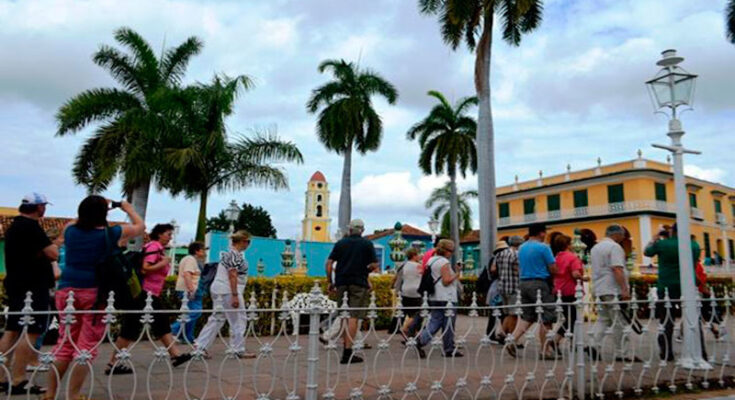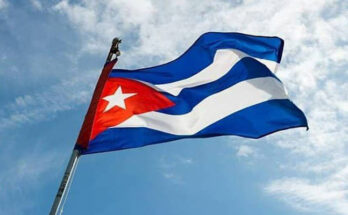The most recent results of tourism in Cuba indicate a significant increase in this economic activity, which today means hope for the solution of many of the problems of the country.
The digital newspaper Cubadebate summarized on Friday that the data on international tourism in Cuba, in the recently ended 2023, indicate two million 436,979 arrivals of non-resident visitors, which represents 822,892 more than in 2022.
Due to the relevance of the analysis of said publication, we publish all the data expressed therein.
When referring to the mentioned data, they indicate that this is a significant increase with respect to the same preceding period. In 2023, a gradual increase was observed in all major markets except the United Kingdom and the Netherlands.
As a result of factors such as air travel frequencies and the emergence of new vacation destinations in the region, with better value for money, there was a significant concentration in the outbound markets, with 70.9 percent of total international visitor arrivals in five main segments.
Among these segments, the publication mentions Canadians, Cubans permanently residing abroad, Americans, Russians and Spaniards. Of the Cubans residing abroad, 320,193 live in the United States.
If international arrivals indicators are analyzed, between 2004-2013, arrivals increased by 803,447 international visitors, an average inter-annual growth of 3.7 percent.
Meanwhile, in the period 2013-2018 visitors increased by 1 million 16 thousand 98 for an average annual increase rate of 10.65 percent. While 2019 closed with 436 thousand 352 fewer visitors in relation to 2018.
For the Cuban case, it is not valid to engage in recovering the wrongly called pre-pandemic 2019 indicators, but to make tourism be reborn, with new strategies and ways of doing in a new era, but under difficult financial conditions and restrictions, which date back to before the Covid-19 pandemic.
In this scenario, the message stresses, it must be taken into account that the destinations that share the tourist geo-space have two important markets, to which the largest of the Antilles does not have access due to restrictions, prohibitions and extraterritorial policies.
In this regard, it is necessary to recall that in September 2017, the State Department reduced 60 percent of the U.S. embassy staff in Havana and the Cuban embassy in Washington.
This was argued as a response to alleged acoustic attacks, and informed that, from that moment on, Cubans would have to travel to a third country to apply for a visa from the North American country.
In November 2017, the U.S. government banned individual travel and transactions with a group of Cuban entities owned by companies associated with the Armed Forces.
At the beginning of 2018, the State Department issued a level three travel alert to Cuba that scared academic and cultural institutions and their insurers away from traveling to the island. Cuban tourism became a political weapon.
In 2019, euphemistically the last Pre-Pandemic year, anti-Cuban measures continued, particularly travel restrictions.
By June, the White House National Security Advisor announced an end to veiled Tourism to Cuba.
The government eliminated the People to People educational travel category that covered cruise ship passengers, effectively eliminating cruise ship travel, as well as boat and private jet flights to Cuba.
On June 5, all U.S. cruise lines announced the elimination of Cuba from their itineraries.
While the Treasury Department fined Expedia Group, Hotelbeds USA and Cubasphere for allegedly violating OFAC regulations for selling travel or services to move within Cuba, or between that country and locations outside the United States.
In October 2019, the U.S. government forced third-country companies to cease their leases with Cubana de Aviación, resulting in the cancellation of international flights to Santo Domingo, Mexico, Cancun, Caracas, Port-au-Prince, Fort de France and Point de Pitre.
And in November, Trivago, a German company with a U.S. parent company specializing in Internet-related services and products in the hotel and lodging fields, eliminated Cuba.
This was due to the restrictive measures of the White House government and as a consequence Cuban hotel facilities disappeared from one of the main search platforms, which offers travelers enough information to choose any destination in the world.
International tourism for Cuba in 2024 will continue to face one of the deepest and most lasting crises in the last twenty years, when the presidential elections in the United States, Mexico and the Dominican Republic will also have an impact.
The economic situation will determine the demand for new emerging destinations in the Mexican Caribbean, Central America and the Dominican Republic, where supply will be concentrated.
The new luxury hotel resorts with the shrewdness of the big hotel chains in the Caribbean and the conformation of the air scenario with new itineraries and routes, will be another parameter to take into account.
The Cubadebate article concludes that, nevertheless, the trends for Cuba foresee a year in which 3.2 million international visitors could arrive.
(Taken from PL)




